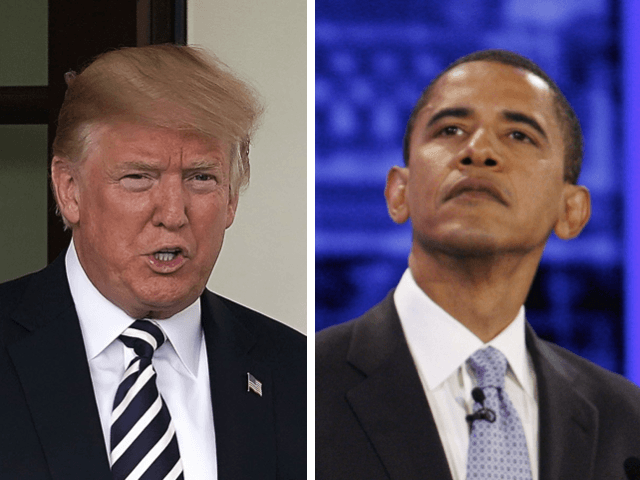NEW YORK — Amid the flurry of news media coverage surrounding President Donald Trump’s criticism of the U.S. intelligence community, it may be instructive to recall the Obama administration was repeatedly accused of politicizing the country’s intelligence agencies to advance its own foreign policy agenda.
This while Trump has said that while he may disagree with some of the Intel community’s assessments, he respects the independence of those same agencies.
The uproar began last week, when Trump pushed back after U.S. agencies issued an annual report on global threats claiming Iran is not taking measures to produce a nuclear weapon and that North Korea was unlikely to give up its arsenal.
Trump initially responded on Twitter, calling the Intel community “extremely passive and naïve when it comes to the dangers of Iran.”
Trump then announced that he held a meeting with the leaders of the U.S. intelligence community and said their views had been “mischaracterized” by the news media.
In public remarks on the matter, Trump affirmed that he wants U.S. intelligence agencies to have their own opinions and explained that he takes their analysis into account when taking foreign policy decisions.
“I am going to trust the intelligence that I’m putting there,” Trump told CBS News’ “Face the Nation.”
“But I will say this: My intelligence people, if they said, in fact, that Iran is a wonderful kindergarten, I disagree with them 100 percent,” he continued. “I have intel people, but that doesn’t mean I have to agree,” Trump added, upholding the independence of the U.S. intelligence community.
The Obama administration, by contrast, was repeatedly accused of politicizing the U.S. intelligence community.
One damning investigation by House Republicans released in August 2016 found that under the Obama administration, the intelligence arm of the U.S. Military’s Central Command (CENTCOM) routinely produced intelligence that “distorted, suppressed, or substantially altered” the results of the campaign against the Islamic State.
The probe found that top CENTCOM leaders modified intelligence assessments to present an “unduly positive” assessment of combating the Islamic State and training the Iraqi Security Forces (ISF).
Far from respecting the independence of the military’s intelligence arm, analysts whose views conflicted with senior intelligence leaders were kept out of CENTCOM’s intelligence fusion center and restrictions were implemented for analysts whose views dissented, according to the investigation.
One common them that House Republicans found was that some Obama-era CENTCOM analysts declined to be interviewed, possibly out of fear of reprisals from CENTCOM leadership, while the interviews that did take place were under the watchful eyes of Obama’s DOD officials.
One year prior to the House probe, The Daily Beast broke the story that over 50 CENTCOM intelligence analysts formally complained that senior officials inappropriately altered their reports on IS and al-Qaeda’s Syria branch.
Writing at National Review in September 2015, former national security employee Fred Fleitz documented other instances of the Obama administration allegedly politicizing intelligence:
Director of National Intelligence James Clapper, for instance, was accused of politicizing intelligence analysis in February 2011 when he said, during a congressional hearing: “The term ‘Muslim Brotherhood’ is an umbrella term for a variety of movements — in the case of Egypt, a very heterogeneous group, largely secular, which has eschewed violence and has decried al-Qaeda as a perversion of Islam.”
Many members of Congress were outraged by this statement, which Clapper later had to walk back. But Clapper was speaking from prepared remarks that conveyed the consensus views of the U.S. intelligence community. Why did no intelligence analysts come forward to allege that the intelligence community was playing down the threat from the Muslim Brotherhood.
…
I can cite many other examples of politicized intelligence analysis during the Obama administration, including the intelligence community’s altering of terrorism terminology to conform with the Obama administration’s agenda. **Analysts must now use the term “home-grown violent extremists,” for example, instead of “home-grown terrorists.” Intelligence agencies never use the terms “radical Islam” or “Islamist.” **When referring to ISIS terrorists in Syria, the intelligence community’s 2015 worldwide threat report repeatedly refers to them as “Sunni violent extremists.”
Aaron Klein is Breitbart’s Jerusalem bureau chief and senior investigative reporter. He is a New York Times bestselling author and hosts the popular weekend talk radio program, “Aaron Klein Investigative Radio.” Follow him on Twitter @AaronKleinShow. Follow him on Facebook.
Written with research by Joshua Klein.

COMMENTS
Please let us know if you're having issues with commenting.